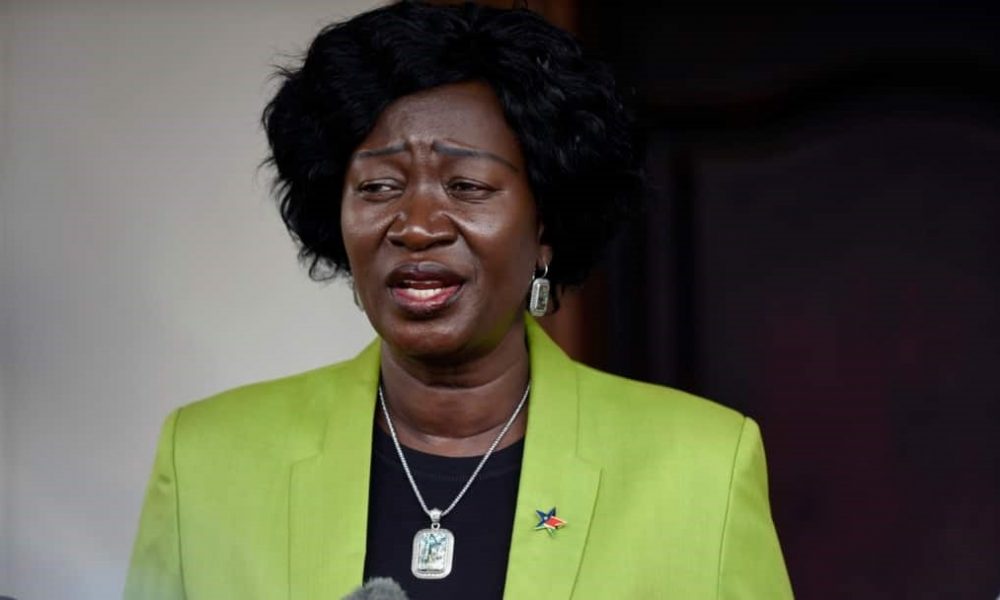By Ephraim Modi Duku Sokiri
The Ministry of General Education and Instruction (MoGE&I) is dismayed to realize that some schools have violated the provision of free education and are still charging parents school fees.
Early this year, President Salva Kiir issued a Republican Order alerting relevant ministries including development partners to constitute provision of free education in the country.
The Minister of General Education and Instruction, Awut Deng Acuil said she has directed all the state governors and the Chief Administrators to implement the order of the president after funds was released.
“I wrote to all the governors and chief administrators to this effect. In this regard, the Ministry of Finance and Planning released funds to pay capitation grants to state schools,” she revealed.
“However, it has come to our notice that some schools continued to charge parents the so-called ‘parents contribution fee’. For example, reports indicated that parents in some schools in Juba such as Atlabara East Primary School, Malakia Primary School and Juba One Girls’ Primary School pay 30,000 SSP to 35,000 SSP per a child,” She disclosed.
The minister cited that the payment is prohibited and unlawful, and directed the head-teachers of the aforementioned schools and others to refund the money back to the children’s parents.
“These payments are (is) illegal and unauthorized. I therefore, direct the head-teachers of these schools and any other schools in the country that took money to return it to the parents immediately without delay,” Acuil ordered.
More importantly, all the state schools were urged to refrain from such malpractices.
Finally, the minister also impulse the state ministries of general education to guarantee the implementation of the republican order of the president that government schools should be free not to be victims of a disciplinary action.
The Presidential decree stipulated that the policy be implemented with immediate effect and directed the ministry of finance to avail necessary funds for the promotion of free education.
Free education could benefit millions of children in the country, but it will need to be followed up with adequate resources and genuine steps for it to make a difference. School tuition fees constitute one of the most common, although not the only, barrier for the children to realize their right to education.
An estimated 2.8 million children are not attending primary or secondary school, a shocking 70 percent of all school-age children in the country according to data.
Conferring to the report of International Human Rights Commission, South Sudan’s Constitution already guarantees all children free and compulsory primary education and free illiteracy eradication programs. Extending free education to include secondary schooling will offer millions of children life-long benefit.
Secondary education, including technical and vocational training, can empower young people with the knowledge and skills needed to thrive and contribute to their communities.
Children with secondary education are more likely to find work as adults, earn more, and escape or avoid poverty. Secondary education can provide young people with essential information to protect their health and well-being.
It also promotes resilience and healthy development and protects mental health. Girls with secondary education are less likely to have children early.
Adolescents who do not complete secondary school are more likely to experience the worst forms of child labour, child marriage, sexual violence, trafficking, and recruitment by armed groups.
South Sudan also deserves praise as one of the six African countries with laws protecting pregnant girls’ rights to stay in school or resume education after giving birth. However, girls remain less likely to enter basic school, attend secondary school, and complete secondary education than boys.
The government will also need to ensure that children with disabilities who often face stigma, discrimination, and abuse at school are not left behind. It will need to enhance the capacity of teachers and ensure their adequate and timely compensation.
It should also fully implement the safe schools’ declaration, which it endorsed in 2015, promising to protect schools from attack and military use, and to fast-track efforts to end recruitment and use of children by armed groups.
By expanding free education, South Sudan is headed in the right direction, one that improves the country’s prospects for sustainable development. In its 10-year strategic plan for education, South Sudan’s Education Ministry committed to work to increase access to early childhood development. Might free pre-primary education be next on the horizon?




